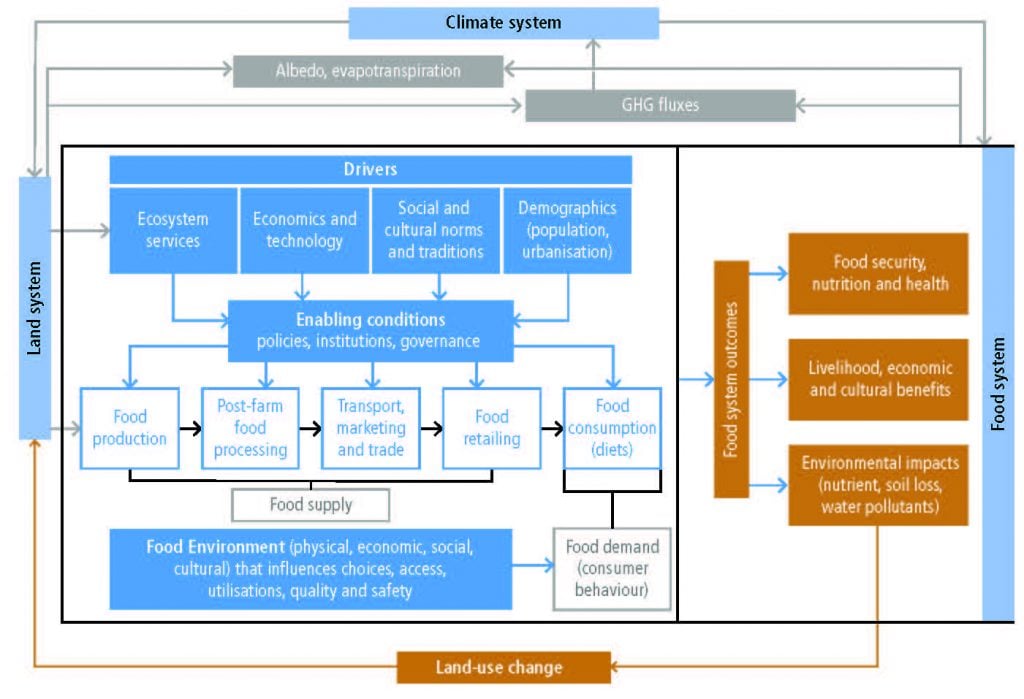
Figure 1.4
Food system (and its relations to land and climate):The food system is conceptualised through supply (production, processing, marketing and retailing) and demand (consumption and diets) that are shaped by physical, economic, social and cultural determinants influencing choices, access, utilisation, quality, safety and waste. Food system drivers (ecosystem services, economics and technology, social and cultural norms and traditions, and demographics) combine with the enabling conditions (policies, institutions and governance) to affect food system outcomes including food security, nutrition and health, livelihoods, economic and cultural benefits as well as environmental outcomes or side-effects (nutrient and soil loss, water use and quality, GHG emissions and other pollutants). Climate and climate change have direct impacts on the food system (productivity, variability, nutritional quality) while the latter contributes to local climate (albedo, evapotranspiration) and global warming (GHGs). The land system (function, structures, and processes) affects the food system directly (food production) and indirectly (ecosystem services) while food demand and supply processes affect land (land-use change) and land-related processes (e.g., land degradation, desertification) (Chapter 5).